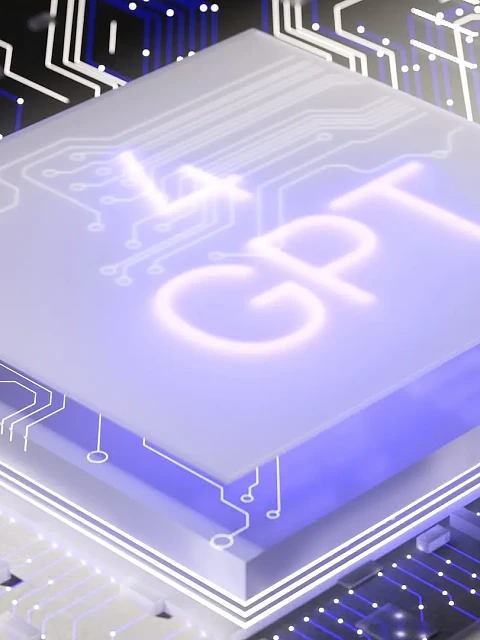
Beyond NVIDIA: Tech Giants Innovate in AI Hardware for 2024
December 12, 2023
When the one-year anniversary of OpenAI's launch of ChatGPT is reached, we have witnessed a hectic year where generative artificial intelligence has become mainstream, creating unprecedented expectations. The potential of this technology to revolutionize the world we live in has led to a new gold rush, with large companies and startups of all sizes attempting to claim a piece of this lucrative pie. However, beyond disruptive applications for enterprises or consumers and business models as a product or service, it is well known that in every gold rush, the seller of shovels and picks is the one who takes the most substantial part of the generated value. In the world of AI, the necessary tools are specialized hardware to accelerate the execution of the involved mathematical algorithms, and in this year 2024, all major technology players are seeking to position themselves accordingly.
NVIDIA: The Rival to Beat
It is widely known that, currently, the major rival to beat in the specialized hardware world for AI is NVIDIA. Led by Jensen Huang, the company originally dedicated to manufacturing graphics cards (GPUs) for gaming and multimedia editing was the first to make the decision almost 20 years ago to invest massive amounts of resources in creating software tools that would harness the enormous computing capabilities of its devices to accelerate all kinds of mathematical algorithms. In this way, NVIDIA's technology became the necessary catalyst, which, combined with, as our colleague and SNGULAR President José Luis Vallejo puts it, "70-year-old mathematics" and the current availability of data, gave rise to the AI that amazes us today.
The dominant market position of NVIDIA's specialized AI hardware is so overwhelming that two circumstances eventually work against it. The first is that the demand for devices is so high that NVIDIA is already unable to meet it with its current production capabilities; the second is that dependence on a single supplier is a risk that major companies in the sector cannot afford when dealing with critical and strategic technology. This has led to the fact that, relatively covertly, all major players are seeking alternatives to NVIDIA's hardware, a trend that will consolidate throughout the year 2024.
AMD: The Throne Aspirant
If we're looking for a company that can directly compete with NVIDIA, the main contender is AMD. Historically, AMD is known for introducing x86 64-bit processor architectures and has maintained an epic battle with Intel for the market share of desktop, laptop, and server chips. However, after the acquisition of ATI Technologies in 2006, AMD also became the sole real competitor to NVIDIA in the graphics card sector. Led by Lisa Su, who interestingly is a NVIDIA's CEO first cousin once removed, AMD is following in NVIDIA's footsteps to leverage its know-how and create a competitive offering of hardware specialized in AI tasks to capture a portion of the market share. This effort has materialized in the recent announcement of datacenter devices whose raw computing power is equivalent or even superior to that of NVIDIA's. Despite the clear software support gap for AI applications, the scarcity of GPUs in the market and their high demand have led AMD to close strategic deals with manufacturers such as Dell or Lenovo. For this reason, analysts have no doubt that AMD will be able to sell all the volume of AI-specialized devices it can produce during 2024.
Intel: a giant with feet of clay
Continuing with pure hardware providers, despite having taken several missteps in recent years, Intel is a classic that always needs to be taken into account. In this regard, Intel remains the market leader in general-purpose processors for data centers adapted to run AI models, although it is true that it has not been able to internally create a competitive offering of classic GPUs capable of rivaling NVIDIA and AMD in the training tasks of these models, having canceled the introduction of its products expected for 2023 and 2024. To address the lack of agility in internal innovation, in recent years Intel has been making various acquisitions of companies specialized in AI hardware, although it has recently had to halt and discontinue a large part of this expanded product catalog. Among the survivors of this great purge, the inherited offering from Habana Labs stands out, whose hardware optimized for training and executing AI algorithms is capable of outperforming classic GPUs in certain tasks with much higher energy efficiency. However, the adoption of this type of specialized AI accelerators is still very limited, and there are rumors that Habana's technology will be integrated into the GPUs that Intel plans to introduce to the market in 2025 and 2026. It is a matter of time to find out if, beyond whether these products will actually see the light or be canceled like their predecessors, Intel will have definitively missed the opportunity to gain a significant share of this market.
Google: a self-contained ecosystem
So far, we have focused on pure hardware manufacturers, but given the magnitude of the market and the critical importance of AI accelerators, there are companies that do not want to depend on third parties when serving their customers. The best example of these companies is Google, which developed and began using its own hardware, the Tensor Processor Units or TPUs, as early as 2015. Since then, it has introduced up to five families of this specially designed processing architecture to handle tensors, the mathematical objects at the heart of every AI algorithm, using them massively both internally and in commercial products and services for third parties. Thus, not only can high-performance Cloud TPUs be used in Google's cloud, but Google Pixel smartphones also include a processor equipped with a low-power TPU to run AI algorithms locally. In this sense, the recent announcement of the Gemini model, Google's response to OpenAI's solutions, represents the definitive consolidation of TPU technology: not only has it been trained with these chips in Google's cloud and can be customized and efficiently run with these units, but the Gemini Nano version will be available in 2024 for local execution on the TPU included in the Google Pixel 8 Pro, its high-end smartphone.
Microsoft: The Big Surprise
Meanwhile, another giant like Microsoft is charting its own course to avoid complete reliance on NVIDIA. In this regard, not only it has announced that it will offer Azure instances in 2024 equipped with the most advanced AMD devices for running AI tasks, thus diversifying the accessible GPU technology offering as a cloud service from Microsoft, but it has also recently disclosed the availability of in-house developed hardware accelerators: the Microsoft Azure Maia AI Accelerator, optimized for AI tasks, and the Microsoft Azure Cobalt CPU, based on ARM architecture and optimized for general-purpose tasks. These devices will begin deployment in Microsoft data centers in 2024 and initially will be responsible for efficiently running flagship commercial solutions such as Microsoft Copilot or OpenAI products on Azure, achieving independence from third parties in critical services and pursuing the development of a more energy-efficient cloud for AI applications.
Conclusion
As we have been able to verify, 2024 is going to be a year marked by the competition of new hardware technologies dedicated to the execution of AI algorithms. These technologies will enable the consolidation and scaling of the market resulting from the explosion of new generative and multimodal applications. They will also facilitate the transition towards a much more efficient and sustainable use of AI, a critical aspect to be accounted for both economic and environmental impact considerations. At SNGULAR, we are prepared not only to offer our clients AI-based software solutions capable of making their processes more efficient and enabling new business lines, but we also possess the knowledge of the underlying hardware to ensure that they are optimal and distinctive compared to the competition.
Our latest news
Interested in learning more about how we are constantly adapting to the new digital frontier?

Tech Insight
November 3, 2023
LangSmith. A review of how to make interaction with LLM prompts easier

Insight
July 12, 2023
Envisioning a sustainable future guided by the technology sector

Interview
June 13, 2021
The potential of 5G -Interview with Daniel Manzano, Innovation Manager at Vodafone

